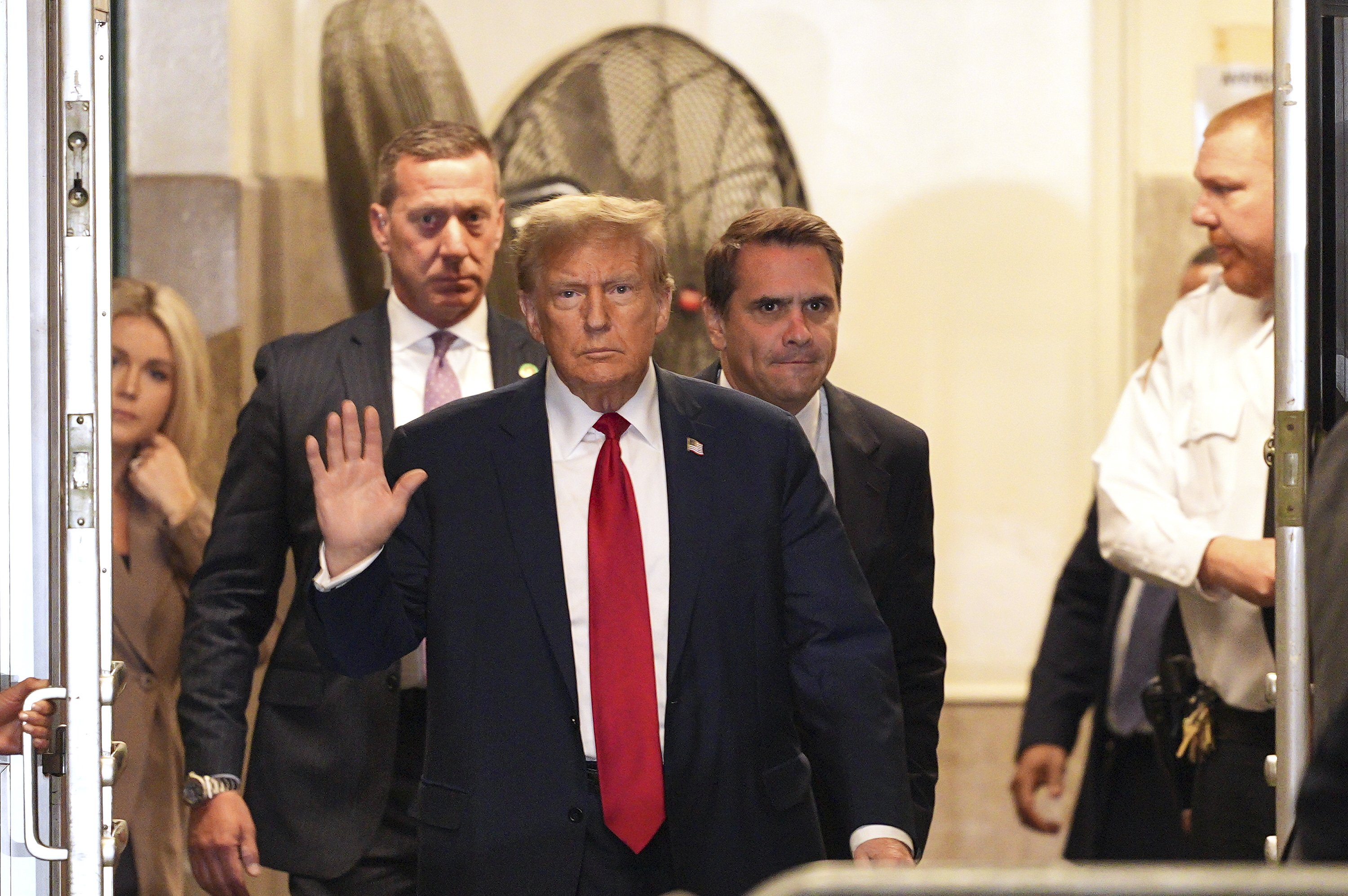WASHINGTON - As the Obama administration decides whether or not to send more U.S. troops to Afghanistan, the latest NBC/Wall Street Journal poll finds that a plurality of Americans now backs a troop increase, and a strong majority supports waiting on a decision until after the country conducts its presidential runoff election next month.
Also, as Senate Majority Leader Harry Reid moves forward crafting a Senate health-care bill that contains a public option — with a state "opt out" — the survey shows support for a government-run insurance plan is at its highest level since the debate began and opposition is at its lowest level.
Perhaps most revealing, the poll highlights the public’s disgust at Washington, with the number trusting government at its lowest level in 12 years and with nearly half of Americans favoring the creation of a new political party.
“I was hoping that business as usual was going to stop with the Obama administration,” said respondent Brian Gross of Poolesville, Md., “and so far I just haven’t seen that.”
As Democratic pollster Peter D. Hart, who conducted this survey with Republican Bill McInturff, puts it: “The mood in America may be blue, but the attitudes toward Washington are jet black.”
A reversal on Afghanistan
By a narrow 47 percent to 43 percent, respondents say they support increasing the troop level in Afghanistan, which is a reversal from last month, when 51 percent opposed the increase and 44 percent supported it.
In addition, as Republicans criticize President Barack Obama for waiting to announce his troop decision — former Vice President Dick Cheney recently accused him of “dithering” — 58 percent of poll respondents say they support delaying a decision until after Afghanistan’s Nov. 7 runoff election and after the country’s political situation becomes clearer.
U.S. & World
“I am optimistic that he and his generals are taking some time to actually think through this,” said Andrew Maxwell of Los Angeles.
Yet the public is divided on what Obama and his generals should ultimately decide. Fifty-five percent say they would accept sending an additional 10,000 troops and training Afghanistan’s army and police; 46 percent favor not sending any more troops and focusing instead on attacking specific al-Qaida camps on the Afghanistan-Pakistan border; and 45 percent support withdrawing all U.S. troops from the country.
Just 43 percent support sending 40,000 more troops to Afghanistan — which is the recommendation of the top U.S. commander there, Gen. Stanley A. McChrystal.
Opting for the public option
Turning to domestic politics, the NBC/Journal poll — which was conducted of 1,009 adults Oct. 22-25, and which has an overall margin of error of plus-minus 3.1 percentage points — shows that opinions on the health care debate haven’t changed much over the past month.
Only 38 percent believe that Obama’s health plan is a good idea, compared with 42 percent who say it’s a bad idea, which is virtually identical to the numbers from September.
But what has changed is that support for a government-run insurance plan is now at its highest level since the debate began. Forty-eight percent say they favor a public health plan administered by the federal government that would compete with private insurers, compared with 42 percent who oppose it.
That's a shift from last month, though within the margin of error, when 48 percent opposed the public option and 46 percent supported it. And it's a large swing from August, when 47 percent were in opposition and 43 percent were in favor.
Also on health care, a plurality of Americans (45 percent) believes it would be better to pass Obama’s health care plan than keep the current system. But a majority (51 percent) also are worried that reform might go too far.
McInturff, the GOP pollster, describes the public as “hesitant reformers” on health care. “They would like to see something done, but they’re not convinced about the current direction.”
Disgusted with Washington
Perhaps the most striking finding in the poll is the public dissatisfaction with Washington. Only 23 percent say they trust government “just about always” or “most of the time,” which is the lowest number on this question since 1997.
What’s more, nearly half of respondents (46 percent) support building an independent political party to compete with the Republicans and Democrats.
And nearly six in 10 (57 percent) blame both Republicans and Democrats for the partisanship in Washington. Twenty-four percent blame the Republicans only, while 17 percent point their finger at the Democrats.
Obama hasn’t been immune to this anger at Washington, although he remains the most popular politician in the poll.
His job-approval rating remains at 51 percent for a third-straight survey, and 56 percent have a favorable view of him.
Yet the public prefers his personal qualities to his professional accomplishments so far as president. In the poll, Obama gets his highest marks for being easygoing and likeable (a combined 72 percent), for being inspirational and exciting (60 percent), for having strong leadership qualities (56 percent), for improving America’s image around the world (53 percent) and being honest and straightforward (51 percent).
“My opinions have not changed about Obama, because he's a man of integrity, he's an honest and trustworthy person,” said Carolyn Johnson-Josey of Atlanta, Ga.
On the other hand, he gets his lowest marks for being decisive (48 percent), for being knowledgeable and experienced enough to handle the presidency (47 percent), for being a good commander-in-chief (46 percent), for having the ability to handle a crisis (45 percent), for uniting the country (38 percent), for changing business as usual in Washington (38 percent) and for achieving his goals (37 percent).
“The president’s personal popularity is exceptionally solid,” said Hart, the Democratic pollster. “But the evaluation of his [job] performance is much more tenuous.”
GOP positive rating equals all-time low
While impressions of Obama’s professional performance are mixed, the same can’t be said for the Republican Party at large.
According to the poll, just 25 percent have a positive opinion of the GOP, which ties the party’s low-water mark in the survey. By comparison, 42 percent have a favorable view of the Democratic Party.
In addition, only 23 percent approve of the way in which congressional Republicans have handled health care, compared with 43 percent who approve of Obama’s handling of the issue.
And looking ahead to 2010 congressional midterm elections, 46 percent say they prefer a Democratic-controlled Congress, versus 38 percent who want a Republican-controlled Congress. Last month, Democrats held a three-point advantage on this question (43-40 percent).
Other findings in the poll:
- Former Alaska Republican Gov. Sarah Palin’s favorability/unfavorability score (27-46 percent) is nearly similar to Democratic House Speaker Nancy Pelosi’s (26-42 percent).
- The public’s opposition to gay marriage has decreased: In 2004, Americans opposed it by 62 percent to 30 percent; now it’s 49-41.
- The public’s support for gun-control measures also has decreased. In 1991, three-quarters of Americans supported banning the sale of assault weapons and semiautomatic rifles. This past April, 53 percent favored it. And in this poll, 49 percent say they support the ban.
Mark Murray covers politics for NBC News. NBC’s Ali Weinberg contributed to this article.



